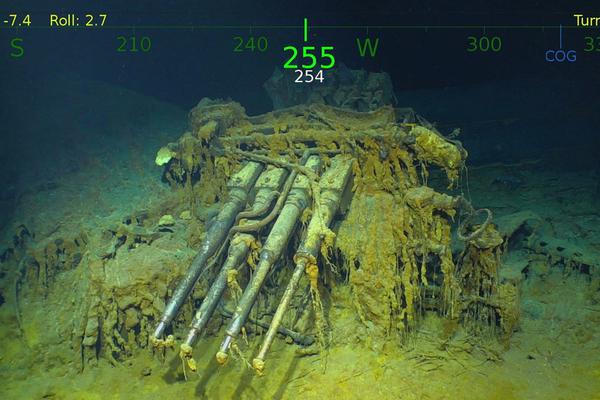
1. The five functions of the operating system are processor management, memory management, device management, file management and job management. Processor management The most basic function of processor management is to process interrupt events. After configuring the operating system, various events can be processed.
2. The main function of the computer operating system is process management, and its work is mainly process scheduling. In the case of a single user and a single taskNext, the processor is only monopolized by one user's task, and the process management work is very simple.
3. Operating System (abbreviation: OS) is a group of interrelated system software programs that supervise and control computer operation, use and run hardware, software resources and provide public services to organize user interaction.
4. Five major management functions of the operating system: (1) Job management: including tasks, interface management, human-computer interaction, graphical interface, voice control and virtual reality, etc. ( 2) File management: also known as information management. ( 3) Storage management: The essence is the management of storage "space", which mainly refers to the management of the main memory.
Any information system has five basic functions, namely: information collection and recording (input); information storage; information processing; information transmission; information output .
According to the functional introduction of the information system, the information system has five basic functions: input, storage, processing, output and control. Different functions have different functions, such as input function: the input function of the information system is determined by the purpose to be achieved by the system, the ability of the system and the permission of the information environment.
Five basic functions of the information system: input, storage, processing, output and control. Input function: The input function of the information system is determined by the purpose to be achieved by the system, the ability of the system and the permission of the information environment.Storage function: Storage function refers to the ability of the system to store various information and data. Mainly including: statistical functions.
The operating system has five functions: processor management: mainly controls and manages the work of the CPU. Storage management: mainly allocate and manage memory. Device management: mainly manage basic input and output devices. File management: responsible for the organization, storage, operation and protection of computer files.
The functions of the computer operating system include: processor management, memory management, device management, file management, job management and other functional modules. Processor management. The most basic function of processor management is to handle interrupt events. The processor can only detect interrupt events and generate interrupts and cannot process them.
The main function of the computer operating system is process management, and its main work is process scheduling. In the case of a single user and a single task, the processor is only monopolized by one user's task, and the work of process management is very simple.
The main functions of the operating system are process and processor management, job management, storage management, device management and file management, as follows: process and processor management. Because the execution of the program must rely on the processor, only one program flow can be processed and executed at any time. Homework management.
I) Processor management The most basic function of processor management is to handle interrupt events. The processor can only detect interrupt events and generate interrupts, and cannot handle these interrupt events. After configuring the operating system, all types of events can be handled.Another function of processor management is processor scheduling.
Five management functions of the operating system: job management: including tasks, interface management, human-computer interaction, graphical interface, voice control and virtual reality, etc. File management: also known as information management. Storage management: The essence is the management of storage "space", which mainly refers to the management of the main memory.

The storage management function of the operating system is to manage memory resources. It mainly realizes memory allocation and recovery, storage protection and memory expansion. The device management of the device management operating system is responsible for allocating and recycling external devices, and controlling external devices to operate according to the requirements of user programs.
The functions of the computer operating system include: processor management, memory management, device management, file management, job management and other functional modules. Processor management. The most basic function of processor management is to handle interrupt events. The processor can only detect interrupt events and generate interrupts and cannot process them.
The five functions of the operating system are processor management, memory management, device management, file management and job management.Processor management The most basic function of processor management is to process interrupt events. After configuring the operating system, various events can be processed.
Hearthstone Arena win rate-APP, download it now, new users will receive a novice gift pack.
1. The five functions of the operating system are processor management, memory management, device management, file management and job management. Processor management The most basic function of processor management is to process interrupt events. After configuring the operating system, various events can be processed.
2. The main function of the computer operating system is process management, and its work is mainly process scheduling. In the case of a single user and a single taskNext, the processor is only monopolized by one user's task, and the process management work is very simple.
3. Operating System (abbreviation: OS) is a group of interrelated system software programs that supervise and control computer operation, use and run hardware, software resources and provide public services to organize user interaction.
4. Five major management functions of the operating system: (1) Job management: including tasks, interface management, human-computer interaction, graphical interface, voice control and virtual reality, etc. ( 2) File management: also known as information management. ( 3) Storage management: The essence is the management of storage "space", which mainly refers to the management of the main memory.
Any information system has five basic functions, namely: information collection and recording (input); information storage; information processing; information transmission; information output .
According to the functional introduction of the information system, the information system has five basic functions: input, storage, processing, output and control. Different functions have different functions, such as input function: the input function of the information system is determined by the purpose to be achieved by the system, the ability of the system and the permission of the information environment.
Five basic functions of the information system: input, storage, processing, output and control. Input function: The input function of the information system is determined by the purpose to be achieved by the system, the ability of the system and the permission of the information environment.Storage function: Storage function refers to the ability of the system to store various information and data. Mainly including: statistical functions.
The operating system has five functions: processor management: mainly controls and manages the work of the CPU. Storage management: mainly allocate and manage memory. Device management: mainly manage basic input and output devices. File management: responsible for the organization, storage, operation and protection of computer files.
The functions of the computer operating system include: processor management, memory management, device management, file management, job management and other functional modules. Processor management. The most basic function of processor management is to handle interrupt events. The processor can only detect interrupt events and generate interrupts and cannot process them.
The main function of the computer operating system is process management, and its main work is process scheduling. In the case of a single user and a single task, the processor is only monopolized by one user's task, and the work of process management is very simple.
The main functions of the operating system are process and processor management, job management, storage management, device management and file management, as follows: process and processor management. Because the execution of the program must rely on the processor, only one program flow can be processed and executed at any time. Homework management.
I) Processor management The most basic function of processor management is to handle interrupt events. The processor can only detect interrupt events and generate interrupts, and cannot handle these interrupt events. After configuring the operating system, all types of events can be handled.Another function of processor management is processor scheduling.
Five management functions of the operating system: job management: including tasks, interface management, human-computer interaction, graphical interface, voice control and virtual reality, etc. File management: also known as information management. Storage management: The essence is the management of storage "space", which mainly refers to the management of the main memory.

The storage management function of the operating system is to manage memory resources. It mainly realizes memory allocation and recovery, storage protection and memory expansion. The device management of the device management operating system is responsible for allocating and recycling external devices, and controlling external devices to operate according to the requirements of user programs.
The functions of the computer operating system include: processor management, memory management, device management, file management, job management and other functional modules. Processor management. The most basic function of processor management is to handle interrupt events. The processor can only detect interrupt events and generate interrupts and cannot process them.
The five functions of the operating system are processor management, memory management, device management, file management and job management.Processor management The most basic function of processor management is to process interrupt events. After configuring the operating system, various events can be processed.
bingo plus update today Philippines
author: 2025-01-11 04:42UEFA Champions League live streaming app
author: 2025-01-11 02:33 Casino redeem
Casino redeem
886.51MB
Check European Cup live
European Cup live
975.72MB
Check Hearthstone deck
Hearthstone deck
946.19MB
Check Hearthstone arena deck Builder
Hearthstone arena deck Builder
717.66MB
Check UEFA Europa League
UEFA Europa League
272.51MB
Check UEFA Europa League
UEFA Europa League
354.91MB
Check Walletinvestor digi plus
Walletinvestor digi plus
538.19MB
Check Hearthstone deck
Hearthstone deck
848.18MB
Check UEFA TV
UEFA TV
671.55MB
Check Casino Plus login register
Casino Plus login register
885.14MB
Check Casino free 100 no deposit
Casino free 100 no deposit
781.42MB
Check Arena plus APK
Arena plus APK
312.62MB
Check Casino Plus login register
Casino Plus login register
498.84MB
Check Walletinvestor digi plus
Walletinvestor digi plus
567.82MB
Check TNT Sports
TNT Sports
166.59MB
Check UEFA Champions League standings
UEFA Champions League standings
736.21MB
Check Casino Plus login register
Casino Plus login register
999.98MB
Check Hearthstone arena deck Builder
Hearthstone arena deck Builder
213.35MB
Check European Cup live
European Cup live
199.94MB
Check Casino Plus login register
Casino Plus login register
538.86MB
Check Hearthstone Arena win rate
Hearthstone Arena win rate
197.95MB
Check Arena Plus login
Arena Plus login
944.42MB
Check Hearthstone Arena win rate
Hearthstone Arena win rate
241.59MB
Check Arena Plus login
Arena Plus login
859.63MB
Check TNT Sports
TNT Sports
142.65MB
Check UEFA Champions League
UEFA Champions League
774.61MB
Check Hearthstone arena
Hearthstone arena
659.99MB
Check Hearthstone Arena Tier List
Hearthstone Arena Tier List
879.38MB
Check Bingo Plus
Bingo Plus
126.85MB
Check Hearthstone Arena class tier list 2024
Hearthstone Arena class tier list 2024
639.14MB
Check PAGCOR online casino free 100
PAGCOR online casino free 100
229.77MB
Check Casino Plus app
Casino Plus app
466.81MB
Check Hearthstone Arena Tier List
Hearthstone Arena Tier List
428.71MB
Check UEFA Champions League standings
UEFA Champions League standings
399.27MB
Check Hearthstone arena class win rates reddit
Hearthstone arena class win rates reddit
297.93MB
Check Casino free 100 no deposit
Casino free 100 no deposit
197.77MB
Check
Scan to install
Hearthstone Arena win rate to discover more
Netizen comments More
2929 UEFA TV
2025-01-11 04:26 recommend
1179 Hearthstone deck
2025-01-11 04:23 recommend
191 European Cup live
2025-01-11 03:25 recommend
1507 Arena Plus login
2025-01-11 03:08 recommend
1307 Europa League app
2025-01-11 02:57 recommend